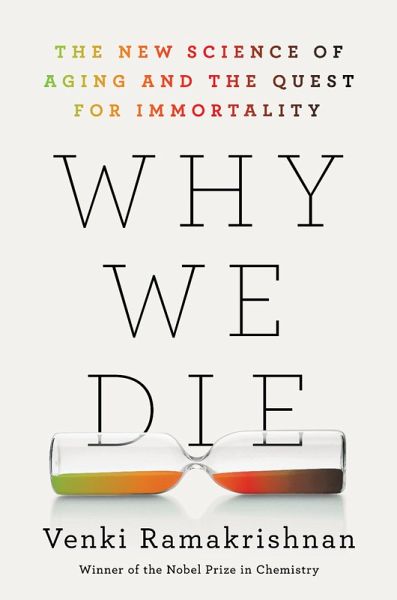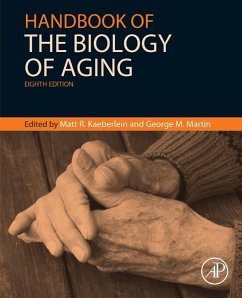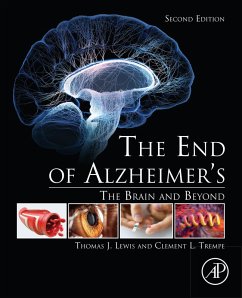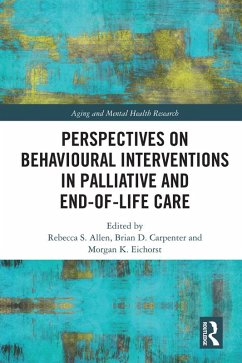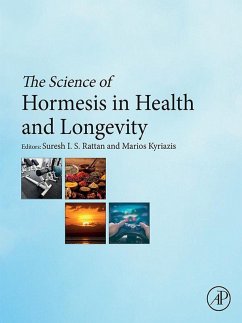complex systems in delicate balance-a balance we still barely understand." -
The Times (London)"Why We Die is a candid, wide-ranging, and hype-free survey of the latest in longevity research, from tortoises to telomeres. With his delightful gift for storytelling, Venki Ramakrishnan breathes life into the biology of death. If you want to know what science tells us about lifespan,
Why We Die is the only book you need." -
SAFI BAHCALL, bestselling author of Loonshots: Nurture the Crazy Ideas That Win Wars, Cure Diseases, and Transform Industries"It is rare to find a book that manages to combine science, politics, memoir, and medicine with ease, grace, and lucidity. Ramakrishnan's book, which comes at a time when the hype and hope around immortality has ascended to a febrile pitch, achieves precisely all of this, while taking readers on an incredible journey that encompasses the knowns and many unknowns that surround the science, mystery, and metaphysics of death and dying. This is a book for many generations, about many generations." -
SIDDHARTHA MUKHERJEE, author of the Pulitzer Prize-winning Emperor of All Maladies and the #1 New York Times bestseller The Gene"Why We Die is both an engaging, accessible overview of the science of aging and a barbed takedown of the immortality crowd. It is also a love letter to our fleeting existence. ... Ramakrishnan has a flair for lucid explanation... fusing deep scientific insights with thoughtful reflections on society-and delivering a velvet-gloved pummeling to some of the most prominent figures in aging research. ... An exhortation to dine well during our brief appearance at the feast of life." -
New Statesman"[Ramakrishnan's] status as a knowledgeable outsider to the field allows him to evaluate aging science objectively and explain key concepts lucidly. ... Optimistic, yet tempered, he believes that medical research has the potential to improve human aging and that we need to be mindful of how advances are deployed so as not to magnify societal inequities. ... A rewarding path to better understand the biology of aging." -
Science"For a book about death, Venki Ramakrishnan's
Why We Die is joyfully alive. The story he tells is one of aging and death, but along the way he covers a huge range of biology, evolution, genetics, chemistry, and medicine. This is science writing at its finest: readable, authoritative, and impactful. The vignettes of important discoveries and the scientists that made them enliven the text, and show the personal side of the science of aging. As a scientist who studies dead things, this book gave me a whole new perspective on that one inevitable thing in every organism's life." -
STEVE BRUSATTE, professor and paleontologist at the University of Edinburgh and New York Times bestselling author of The Rise and Fall of the Dinosaurs"Utterly fascinating. Venki Ramakrishnan's ability to take the most challenging subjects and make them clear, enthralling and packed with insights fills me with awe." -
BILL BRYSON, New York Times bestselling author of The Body"This riveting and revealing book is for all of us who wonder whether aging and mortality are the next frontiers for human science to cross. Has the first person destined to live to two hundred already been born? Can we really extend our longevity further and further until ... until what? Immortality?
Why We Die takes us on a thrilling ride through the science of aging. Meet naked mole rats, lugworms, budding yeast and creepy human charlatans on the way. Venki Ramakrishnan has an extraordinary gift for explaining science with clarity, wit, and enviably entertaining narrative flair. A must read." -
STEPHEN FRY, comedian, actor, writer"Why We Die is a crisply written, captivating and clear-eyed view of death, and how to defeat it. From research on starvation diets, young blood and cryonics to the longevity of naked mole rats, Nobelist Venki Ramakrishnan introduces us to a cast of extraordinary characters in his quest to fathom how elastic lifespan could prove to be. I believe
Why We Die will be his enduring legacy, yet deep down, suspect most of us would still rather achieve immortality through not dying." -
ROGER HIGHFIELD, author and science director of the Science Museum Group, London"The conquest of premature death has been remarkably successful in the past century. Can we go one better and extend life? This erudite, nuanced and insightful book tells a rich tale of discovery about why we age and die, skewers some charlatans along the way and offers just a glimmer of hope about immortality." -
MATT RIDLEY, New York Times bestselling author of Genome"Why We Die brilliantly captures the essentials of current understanding of the aging process. This is an enjoyable romp through molecular and cell biology-and thought-provoking about ethical issues." -
LINDA PARTRIDGE, Founding Director of the Max Planck Institute for the Biology of Ageing"[A] fascinating book. ... With a topic as charged as eternal life, it's hard to separate hype from reality. Ramakrishnan aims to help readers make sense of billionaire antics, breathless press releases, and splashy scientific advances. He wants his reader to understand why we age, why we die, and what, realistically, can be done about it. ... Colorful and memorable. ... Entertaining. ... [Ramakrishnan's] writing is clever and approachable. He strives to demystify these high-context ideas for the average reader." -
Undark Magazine"
Why We Die asks whether it is possible to arrest the decay of body and mind. ... [Ramakrishnan] has a jauntily accessible style. He likens a breakdown in vital proteins to an orchestra playing discordantly. When discussing how the energy-generating mitochondria in cells degrade over time, he pictures them 'rusting from within.' ... Boosting your lifespan may beguile the imagination but could rob your existence of meaning, because there is no urgency to make every day count. Perhaps, after all, life's transience is the key to its beauty." -
The Economist"This book explains, in an accessible and entertaining manner, the science behind one of the great themes of humanity. Excellent." -
MICHAEL HALL, discoverer of TOR, recipient of the Lasker Award and the Breakthrough Prize in Life Sciences"Outstanding. ... I read this book with fascination." -
ERIC TOPOL, Ground Truths Substack"An amazing book: profoundly philosophical, funny, and scientific, all at once." -
EDITH HEARD, Director General of the European Molecular Biology Laboratory"Enthralling and eminently accessible. ... [Ramakrishnan] probes the essential ethical question that runs through it all. Even if we could live forever, should we?" -
Bookseller (London)"Ramakrishnan is a fine writer, so readers will enjoy his expert if intensely detailed overview of genetics and evolution as it applies to aging. ... Fascinating. ... An illuminating account of the science of life extension with a more critical eye than most." -
Kirkus Reviews"A wide-ranging look at the changes that take place inside our cells as we age, the prospects for being able to prevent them, and the possible consequences of doing that. An engrossing read." -
SARAH GILBERT, creator of the Oxford AstraZeneca vaccine"I have so enjoyed reading this spectacular book-it's full of hope and fun and extraordinary research. It beautifully answers the question at the core of every life. Understanding why we must die helps us understand how we must live. It changed my perspective on the whole living world but most of all myself and the time I have left." -
CHRIS VAN TULLEKEN, New York Times bestselling author of Ultra-Processed People"Ramakrishnan weaves a story that illuminates this existential topic from so many angles - brilliant!" -
TOM CECH, Nobel Laureate and former president of the Howard Hughes Medical Institute"A fascinating, counterintuitively hopeful, book." -
Think (NPR affiliate KERA)"For anyone overwhelmed by the discourse around longevity and the seemingly constant 'breakthroughs' in the quest to vanquish the march of time,
Why We Die is meant to help make sense of it all. ... The appeal of
Why We Die is evergreen. But the book also comes at an opportune moment." -
GQ"This timely book... seeks to transform our understanding of why we grow old and die." -
Irish Independent"Delves into the nitty-gritty of just what happens when a body dies, why some age more slowly than others, and the ethics of employing science to create a kind of immortality (if you've got the money), among many other things. Oh, and he says some good things about red wine. Accessible, and strangely entertaining. -
Sydney Morning Herald (Non-Fiction Pick of the Week)"A dispassionate journey through current scientific understanding of aging and death." -
The Harvard Gazette"Fascinating." -
Big Brains podcast"[An] expert voice. ... Ramakrishnan is merciless in his debunking of such 'crackpot' promises like cryogenics. ... But other avenues such as caloric restriction and targeting senescent cells for destruction are more plausible." -
The Straits Times (Singapore)"Ramakrishnan won the Nobel Prize in Chemistry in 2009 'for studies of the structure and function of the ribosome.' Annoyingly (I say this with love), he seems to also be a knockout writer." -
Literary Hub"It takes a prolific genius to take a bull by its horns, to stare down death until it gives up some of its highly encrypted secrets. ... An exquisite exposition. ... Structured almost like a page-turner of a whodunit, questions and hypotheses fly at each other, flop or survive and then usher us further on this quest. ... A panoramic view of the unfolding of the secrets of ageing and death in crisp cogent writing that unfolds as a journey, delightful at every pitstop." -
The New Indian Express"Provides succinct insights [in] what is admirably and clearly a generalist account. ... In the human stories of the people who worked on the science of living - most of them ineffectual from the scientific angle - a storytelling opportunity Ramakrishnan relishes, the book comes alive." -
Telegraph India"Why We Die is peppered with fascinating anecdotes, peculiar personalities and valuable historical perspectives, giving it an extra dimension beyond a summary of the state of the art." -
Nature